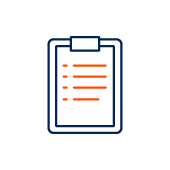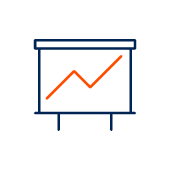Save More During the Homebuying Process!
Wherever you are in your homebuying journey, we have your mortgage needs covered.
Whether you need a first mortgage, want to refinance an existing mortgage, or are looking to downsize, as your financial partner for life, we've got your mortgage needs covered.
We’re here to provide you with guidance and peace of mind throughout the homebuying process. Our mortgage team is dedicated to making sure you are comfortable with your decision. Our team will help you feel confident in your decision and will help you understand the pros and cons of each mortgage program.
- First-Time Homebuyer
- Preapprovals
- Refinancing
- Cashout Options
- Federal Housing Authority (FHA)
- Veterans Affairs (VA)
- U.S. Department of Agriculture (USDA)
- Pennsylvania Housing Finance Agency (PHFA)
- New Jersey Housing Mortgage Finance Agency (NJHMFA)
If you're just starting out on your path to homeownership, we can help ensure you're taking the right steps today to start saving and planning for your future home.
Key Features
-
 Variety of Financing Programs
Variety of Financing Programs
-
 Competitive Rates
Competitive Rates
-
 Refinancing Available
Refinancing Available
Find answers to Frequently Asked Questions below!
Your credit history, income, employment, and the property's value will all majorly impact your mortgage approval. For additional questions about any of these factors, connect with a member of our mortgage team to learn more.
Fixed-rate mortgages offer rate and payment security because rates and payments remain the same. This makes budgeting easier because you know your mortgage interest rate will not change, regardless of rate increases and changes in the economy.
Adjustable-rate mortgages, or ARM, typically feature lower rates and payments early on in the loan term. Though rates tend to start lower with adjustable-rate mortgage compared to a fixed-rate mortgage, it is important to remember that your rate will change down the line and will impact your mortgage payment amount. There are advantages and disadvantages to both, so discuss the right option for your budget with our mortgage experts.
Prequalification will not only help assure the seller that you can secure the necessary financing for a home, but it will also help you determine how much house you can afford.
In most cases, your monthly mortgage payments will include other expenses, like interest, property taxes, and homeowner's insurance, in addition to amount being paid towards your principal balance.
Your First Harvest Mortgage Loan payments should be made directly to our loan servicing partner, Midwest Loan Services. Access Midwest's robust servicing platform today to make online payments or set up automatic recurring payments.
Midwest's online platform offers members the ability to complete common account inquiries at your convenience. Once logged in, members can explore the Mortgage Servicing Center to self-serve on many different needs, such as:
- Access escrow information
- View tax documents and mortgage statements
- Make or edit payments
- Gain insight on your home's equity and understand how to grow it
- & much more!
Members can also contact Midwest Loan Services directly with questions relating to your mortgage at 800.582.7640.
You have options when it comes to mortgages. We offer many programs, including a First Time Homebuyers program. Speak to a member of our mortgage team to find the program that fits your needs.
No documentation is required when applying for a mortgage. It is a good idea to have a recent pay stub and bank statement available to reference when completing the application. You can upload these documents at the time of application and a mortgage professional will review the income and assets to make sure the information you entered on your application is accurate.
Some of the common documents you may be asked to provide are:
- Pay stubs from the past thirty days
- A copy of your current government-issued ID (Driver's License, Passport, etc.)
- W-2 statements from the past two years
- Bank statements of the most recent two months, all pages.
- 401k, IRA, or Mutual Fund accounts showing the most recent transaction summary
- A copy of any stocks or certificates of deposit documentation
- A copy of purchase and sales agreements
- If you are currently renting, provide the contact information of your landlord if applicable
- If you are refinancing, copies of your mortgage statement, hazard insurance policy, and most recent tax bill
- A letter explaining any known credit problems or changes in income
If you are self-employed, paid by commission, or own real estate used for rental purposes, you will need to provide:
- Two years signed personal federal income tax returns, including all schedules
- If self-employed through a corporation, the last two years' corporate returns as well as a year-to-date profit and loss statement and balance sheet
If you are retired, you will need to produce one of the following:
- Two years of signed personal federal income tax returns, including all schedules
- Most recent 1099’s if applicable
- Most recent pension or social security awards letter
- 401k or retirement account statement if taking distributions

